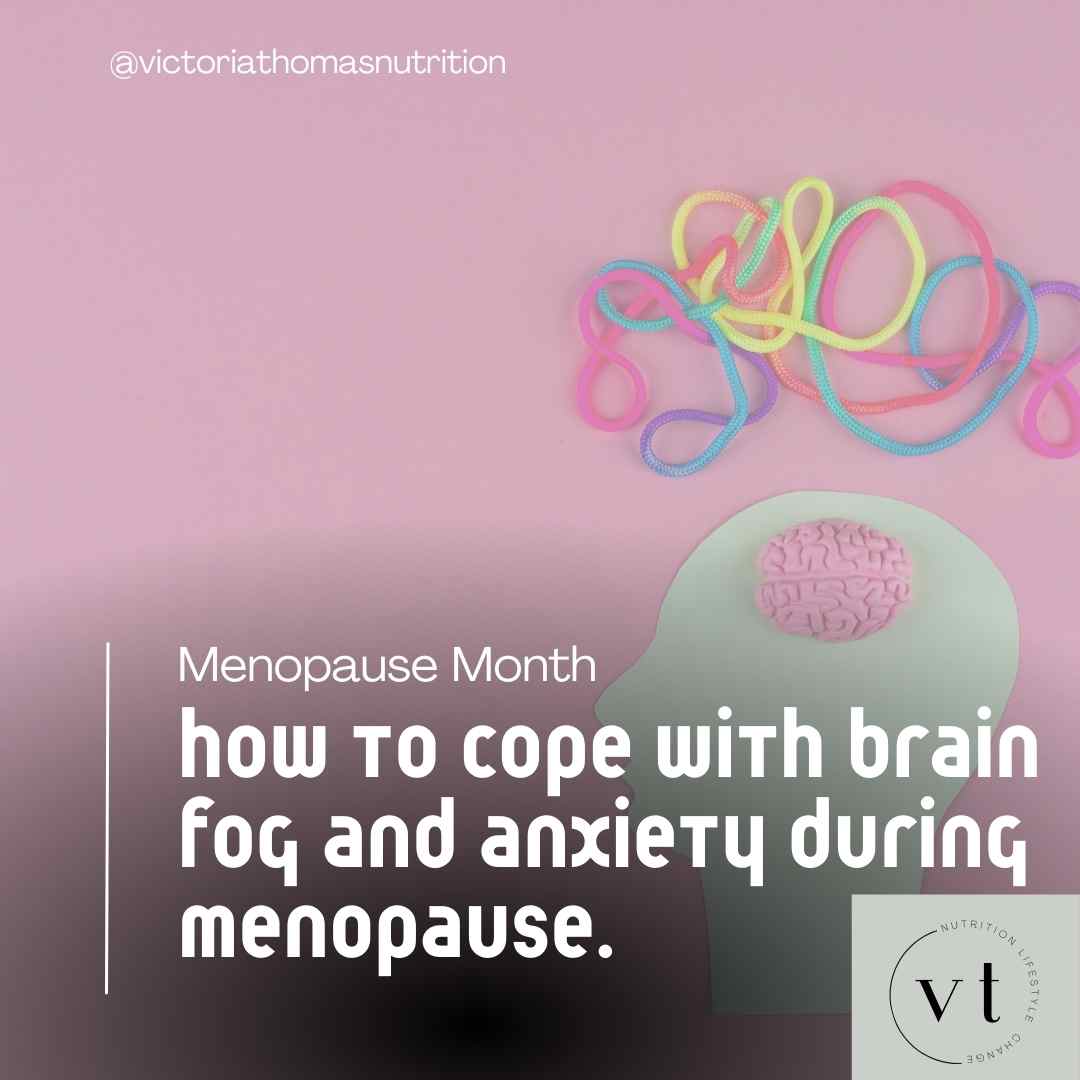How to cope with brain fog and anxiety during menopause.

I don’t know about you but the brain fog really gets me down.
What even is brain fog anyway? For me, it’s the constant forgetfulness - people’s names, my children’s names, appointments missed. We’ve started a new game in my house, it’s called the ‘help Mum fill in the blanks game.’ The teens think it’s hilarious and my husband is convinced I’ve finally lost it. In reality, it’s not hilarious and it can be more than a little bit frightening to feel a mere shadow of one’s former self.
Here are some of the reasons why we suffer from brain fog and anxiety in the Menopause years and my top 5 tips to help
Cortisol Dysregulation - As our bodies experience the rollercoaster that is the peri-menopause combined with the strains of the midlife years, our stress bucket often overflows. Stable levels of oestrogen help regulate cortisol so when levels drop, our ability to cope becomes impaired.
Sleep disruption – Night sweats, trouble falling and staying asleep and general day to day worries can all affect sleep quality. Protracted periods of poor sleep mean we are less able to cope and brain fog ensues. There’s a reason the Navy SEALS use sleep deprivation as a form of extreme training!
Hormonal Imbalance – Oestrogen is our friend and when she decides to leave the party she leaves us with processing, memory and mood regulation issues. Persistent low levels can lead to issues with concentration and forgetfulness (ever gone to get something then realise when you’re there, you don’t know what you came for?)
Key nutrient deficiencies – issues with our gut as a result of depleted hormones, or years of persistently poor eating may mean that when we hit the peri-menopause years, we are somewhat lacking in the key nutrients that can help us at a time when our bodies need them the most. Deficiencies in vitamins and minerals like Magnesium, Omega 3s and B-vitamins are all linked to poorer brain health and increased anxiety.
My top 5 tips for reducing brain fog and anxiety with naturopathic nutrition
Balance blood sugar – regular readers of my blogs will know that this one rears its head time and time again. Balancing blood sugar is key to improving mental clarity and improving brain fog. Include a good quality protein source with every meal, choose complex carbs such as brown rice and quinoa to go with and go easy on the sugar.
Support gut health – it’s no coincidence that a healthy gut means a healthy brain – a superhighway of interconnectedness if you will. A varied diet full of plant-based goodness is a great place to start to get your gut in tip top shape.
Prioritise exercise – life can get pretty tough in the Menopause years and let’s face it, the UK weather is hardly conducive to an outdoor life. Nonetheless, small changes like adding a daily 10min walk around the block can really help release the feel good endorphins needed to boost mood and reduce anxiety. All exercise improves blood flow to the brain, a total win-win, so pick something that’s right for you and build slowly from there. It’s not a race, it’s a journey….
Cognitive training – Just like going to the gym strengthens muscles, mental exercises can keep your brain sharp. Haven’t got the time? If you’re a doom scroller and let’s face it, most of us spend hours mindlessly scrolling our lives away (I’m a sucker for the animal posts), then swap 10mins with your phone and instead connect with your 1980s self and get that brain working! Whether that be a Rubik’s cube, an old fashioned jigsaw puzzle or a cryptic crossword on the train home from work, your brain will appreciate the workout.
Brain fog doesn’t have to rule our lives and the good news is, it doesn’t last forever.
Post-menopause, as hormones settle into a lower but more natural, even rhythm, brain fog lifts and we should start to feel more human once again. And as I always say, small changes make big differences.
Now, what was that word again?…….kids, help me out here, fill in the blanks for Mum!
If you’re struggling to find your way, book in for a free 20 min healthcare review to find out more – I’d be delighted to help.
